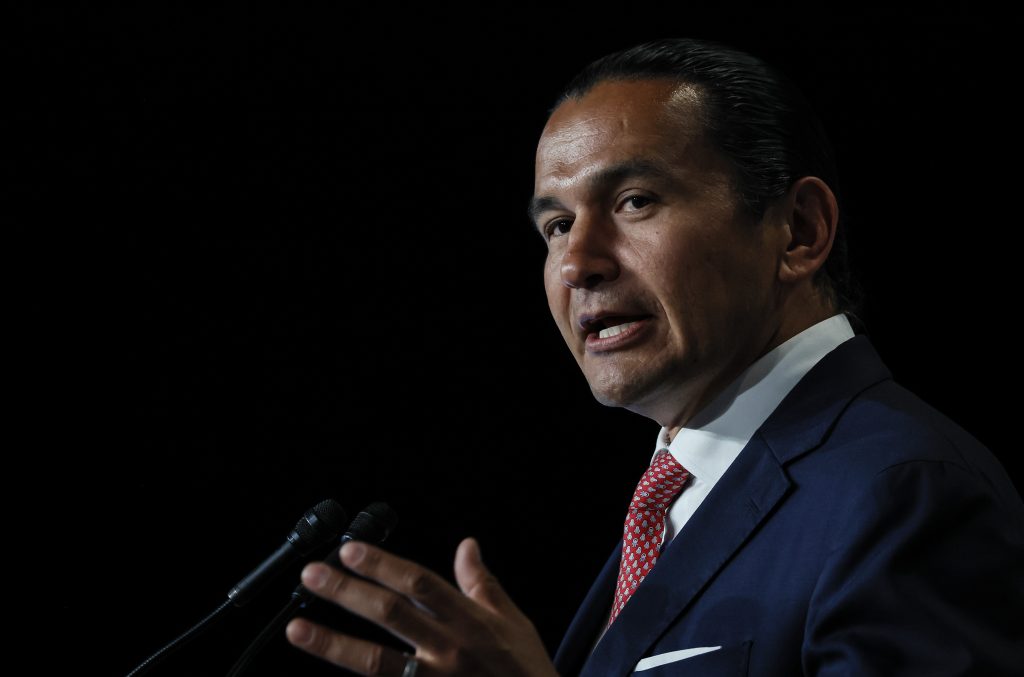ER doctors press Canada’s premiers to address staff shortages

Posted July 12, 2022 1:27 pm.
Last Updated July 12, 2022 1:57 pm.
Editor’s note: A previous version of this article incorrectly suggested Dr. Grewal was speaking for the Canadian Association of Emergency Physicians. Grewal is quoted in this story as an ER physician, with a separate comment from the CAEP.
A group representing emergency room doctors across Canada wants the nation’s premiers to come up with a plan that prevents hospitals and clinics from dealing with closures due to ongoing staffing shortages.
Dr. Navdeep Grewal, an ER doctor in B.C., says the longer rolling closures go on, the longer patients will wait to be treated.
“It takes longer for patients to get the necessary tests that they need, and so their stay within the department is longer. Then, if they need to be admitted, it takes longer for patients to be discharged from their beds once they’re feeling better,” she explained.
Read more: Feds, provinces need to ‘sit down like adults’ on health spending: B.C. premier
Canada’s 13 premiers are meeting in Victoria, B.C., where health care is one of the top concerns.
“Canadians should be able to receive the tests, procedures and health services they need when they need them,” the Council of the Federation said in a statement on Tuesday.
“Premiers are committed to ensuring access to high-quality and timely health services, and reiterate their unanimous call for the federal government to increase its share of provincial-territorial health care costs from 22% to 35% through the Canada Health Transfer (CHT) and to maintain it at this level over time.”
Related video:
The council says provinces and territories are trying to “achieve longer-term improvements including in areas such as health human resources, long-term care, home care, mental health and substance use, pharmaceuticals, primary care, and digital and physical infrastructure.”
When it comes to staffing, Grewal acknowledges hiring both nurses and physicians will take time. But in the meantime, she wants to see an effective plan to reduce the impact on patient care.
“[We need to be] making sure that we have the back-up and making sure that we have a flow through the system as quickly as possible so we can continue to see people on a timely basis, but addressing our own stress and burnout rates at the same time,” she said.
On Monday, B.C. Premier John Horgan, who is hosting the Council of the Federation’s meetings, said with health care worker recruitment and retention a challenge across the country, “that notion of poaching is part and parcel of what we’ll be discussing.”
He adds more foreign credentials need to be recognized in Canada at a faster pace.
“I think most Canadians … if I was to sit down at the kitchen table and talk about the challenges of having foreign health credentials recognized in British Columbia, or in Alberta, or in Manitoba, people will be horrified.”
Related Articles:
-
What role social interaction plays in maintaining mental health?
-
Canada examines if health workers face legal risks if providing Americans abortion services
-
More than 40,000 jobs lost in June: Statistics Canada
Data from the Canadian Institute for Health Information shows admitted patients across Canada waited 38.3 hours in emergency rooms in 2019-2020, up from 29.3 hours five years earlier. The total number of visits spiked to nearly 1.6 million during that time, up from just over 1.1 million.
The figures apply to 90 per cent of patients, and Dr. Atul Kapur with the Canadian Association of Emergency Physicians, said 10 per cent waited even longer.
Horgan warned it will take time to address staffing levels.
“This will not be solved by the waving of a wand.”
With files from Liza Yuzda, Mike Lloyd, and The Canadian Press








